49 Books Published by Rowman & Littlefield on AALBC — Book Cover Collage
Breaking the Silence: What Happens When Men Talk about Their Sexism
by George YancyRowman & Littlefield (Jan 01, 2029)
Read Detailed Book Description
George Yancy is no stranger to controversy. In his infamous New York Times article entitled “Dear White America and the ensuing book, Backlash, he called on white Americans to acknowledge and confront the ways in which they have benefited from white privilege. In this book, Yancy turns the lens on himself to consider the many ways in which he has benefited from and helped to perpetuate sexism.
From childhood and adolescence when boys learn to regard girls as objects of prey to the expectation of objectifying women’s bodies as a defining part of manhood, men who profess shock at sexual assault and harassment silently contribute to a culture that perpetuates violence against women. Combining his own experience with a wide ranging review of contemporary thought, Yancy’s incisive book calls on all men to acknowledge their male privilege and raise their voices against sexism.
 Handbook of Black Librarianship Third Edition
Handbook of Black Librarianship Third Edition
by Andrew P. Jackson, Marva L. Deloach, and Michele FentonRowman & Littlefield (Dec 15, 2024)
Read Detailed Book Description
As Dr. Josey and Ms. DeLoach wrote in their introduction to the second edition of The Handbook of Black Librarianship: “In designing the second edition of The Handbook of Black Librarianship, the editors felt that this work should be a reference tool related to the various aspects of African Americans in librarianship and their work in libraries.”
That first edition covered issues faced by Black library professionals in the various fields of librarianship; organizations formed; Black library collections and books; resources and other areas of progress. The second edition, published twenty-three years later, highlighted more current events in Black librarianship: early and contemporary library organizations, vital issues, African American resources, discussions on and about librarianship, a focus on health librarianship, and information resources and education.
It has now been another twenty-two years since the last edition and time to reflect on “various aspects of African Americans” in our profession as well as the advancements over the past two and a half decades and to review those issues African Americans still face and how modern technological advancements have impacted our profession and the lives of Black librarians.
This third edition’s coverage includes:
- Pioneers and Landmark Episodes
- A Chronology of Events in Black Librarianship
- African American Forerunners in Librarianship
- Modern Day Black Library Organizations
- Vital Issues in Black Librarianship
- Library Service to Our Communities
- Library Technology and Black Librarianship
- Pearls from Our Retirees
- Issues in Diversity, Inclusion and Multiculturalism
- African Library Resources and Education
- Banned Books
- Significant Books and Periodicals for Black Collections
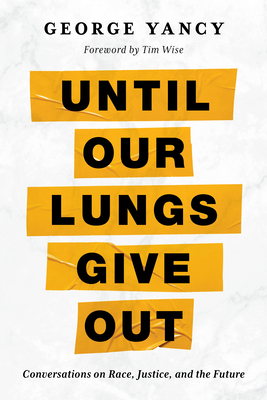 Until Our Lungs Give Out: Conversations on Race, Justice, and the Future
Until Our Lungs Give Out: Conversations on Race, Justice, and the Future
by George YancyRowman & Littlefield (Sep 15, 2023)
Read Detailed Book Description
Award-winning author, scholar, and social visionary George Yancy brings together the greatest minds of our time to speak truth to power and welcome everyone into a conversation about the pursuit of justice, equality, and peace. This interwoven collection of searingly honest interviews with leading intellectuals includes conversations with Noam Chomsky, Judith Butler, Cornel West, Robin D. G. Kelley, and Peter McLaren.
Each conversation bears witness to the weighty moment in which it was first conducted and presented by Truthout and Tikkun magazines while pointing to ramifications, future hurdles, and practical optimism for moving forward. Learning how to speak about such topics as white supremacy and global whiteness, xenophobia, anti-BIPOC racism, fear of critical race theory, and the importance of Black feminist and trans perspectives, readers will be better able to join future conversations with their peers, those in power, and those who need to be empowered to change the status quo.
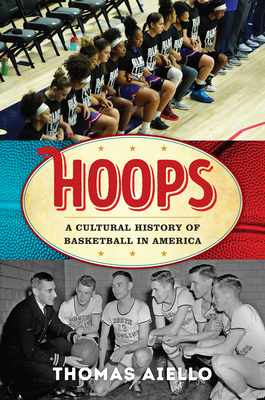 Hoops: A Cultural History of Basketball in America
Hoops: A Cultural History of Basketball in America
by Thomas AielloRowman & Littlefield (Feb 25, 2022)
Read Detailed Book Description
From its early days as a sport to build "muscular Christianity" among young men flooding nineteenth-century cities to its position today as a global symbol of American culture, basketball has been a force in American society. It grew through high school gymnasiums, college pep rallies, and the fits and starts of professionalization. It was a playground game, an urban game, tied to all of the caricatures that were associated with urban culture. It struggled with integration and representations of race.
Today, basketball’s influence seeps into film, music, dance, and fashion. Hoops tells the story of the reciprocal relationship between the sport and the society that received it. While many books have celebrated specific aspects of the game, Thomas Aiello presents the only contemporary cultural history of the sport from the street to the highest levels of professional men’s and womens competition.
He argues that the game has existed in a reciprocal relationship with the broader culture, both embodying conflicts over race, class, and gender and serving a’s public theater for them. Aiello places cultural icons like Bill Russell, Michael Jordan, and Kobe Bryant in the context of their times and explores how the sport negotiated controversies and scandals. Hoops belongs on the bookshelf of every reader interested in the history of basketball, sports, race, urban life, and pop culture in America.
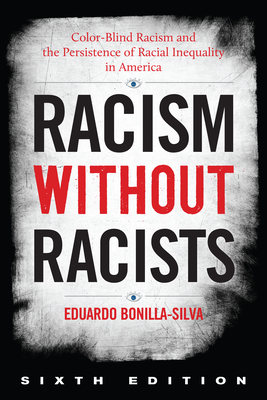 Racism Without Racists: Color-Blind Racism and the Persistence of Racial Inequality in America
Racism Without Racists: Color-Blind Racism and the Persistence of Racial Inequality in America
by Eduardo Bonilla-SilvaRowman & Littlefield (Dec 09, 2021)
Read Detailed Book Description
Eduardo Bonilla-Silva’s acclaimed Racism without Racists examines in detail how Whites talk, think, and account for the existence of racial inequality and makes clear that color-blind racism is as insidious now as ever.
The sixth edition of this provocative book includes new material on systemic racism and how color-blind racism framed many issues during the COVID-19 pandemic. A revised conclusion addresses what readers can do to confront racism—both personally and on a larger structural level.
New to this edition:
New Chapter 2, "What is Systemic Racism? Coming to Terms with How Racism Shapes ’All’ Whites (and Non-Whites)" explains how all members of society participate in structural racism.
New Chapter 10, "Color-Blind Racism in Pandemic Times" provides coverage of racial disparities in mortality, the role of essential workers, and hunger during the pandemic — particularly how public discourse did not reflect how these problems are worse for communities of color.
Updated discussion of police surveillance and violence reflects the current salience of police brutality in the U.S. and enhances the conversation on suave racial discrimination (Chapter 3).
Addresses the question, "What is to be done?" and offers White people ideas on what they can do to change themselves (Chapter 11).
 Know Your Price: Valuing Black Lives and Property in Americaís Black Cities
Know Your Price: Valuing Black Lives and Property in Americaís Black Cities
by Andre M. PerryGlobe Pequot (May 19, 2020)
Read Detailed Book Description
Know Your Price demonstrates the worth of Black people’s intrinsic personal strengths, real property, and traditional institutions. These assets are a means of empowerment and, as Perry argues in this provocative and very personal book, are what we need to know and understand to build Black prosperity.
 Fannie Lou Hamer: Americaís Freedom Fighting Woman
Fannie Lou Hamer: Americaís Freedom Fighting Woman
by Maegan Parker BrooksRowman & Littlefield (Mar 01, 2020)
Read Detailed Book Description
“[T]his is a testimonial to a courageous woman and her deep commitment to human rights.” —Booklist, Starred Review
An accessible biography of Fannie Lou Hamer that reveals pivotal moments within a remarkable life that spanned 59 tumultuous years in the history of American race relations.
In 1964, Fannie Lou Hamer delivered a heart-wrenching testimony before the Democratic National Convention’s (DNC) Credentials Committee. In this speech, Hamer represented both the concerns of the Mississippi Freedom Democratic Party (MFDP) and the limits of American democracy when she proclaimed: “I question America. Is this the land of the free and the home of the brave where we have to sleep with our telephones off the hooks because our lives be threatened daily? Because we want to live as decent human beings, in America?”
This is the speech that sent President Lyndon B. Johnson into a state of outright panic, as he diverted the media’s attention away from Hamer’s stinging indictment of the nation he led. This is the speech that left most Credentials Committee members in tears, forced Johnson to negotiate with the MFDP, and compelled the Democratic Party to vow they would never again seat a segregated delegation. And this is the speech that television networks, made wise to Johnson’s diversionary tactics, replayed during their evening programs, thereby bringing Fannie Lou Hamer into the living rooms of Americans across the nation.
As significant as the 1964 DNC speech is, this book will underscore that Hamer’s testimony was but one moment within a remarkable life that spanned fifty-nine tumultuous years in the history of American race relations. For the first forty-four years of her life, Hamer lived on sharecropping plantations, all the while learning life lessons from her family, the Black Baptist religious tradition, and from the oppressive white supremacist mores surrounding her. Once Hamer’s life path intersected with the mid-century Civil Rights Movement, she spent fifteen years (1962-1977) traveling from the South to the North—and even to the West Coast of Africa—advocating civil rights, economic justice, and interracial cooperation. Hamer shared the platform with Martin Luther King, Jr. and Malcolm X, who introduced her to an audience in Harlem as “the country’s number one freedom fighting woman.” This accessible biography will enrich public memory about Hamer by telling not only the significant story of her riveting testimony, but also by recounting a life filled with triumphs, tragedies, and accompanying lessons for contemporary audiences.
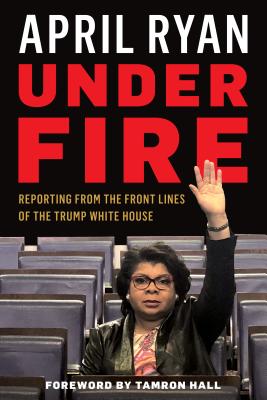 Under Fire: Reporting from the Front Lines of the Trump White House
Under Fire: Reporting from the Front Lines of the Trump White House
by April RyanRowman & Littlefield (Feb 15, 2020)
Read Detailed Book Description
Veteran White House reporter April Ryan thought she had seen everything in her two decades as a White House correspondent. And then came the Trump administration. In Under Fire, Ryan takes us inside the confusion and chaos of the Trump White House to understand how she and other reporters adjusted to the new normal.
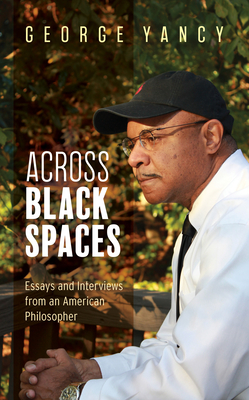 Across Black Spaces: Essays and Interviews from an American Philosopher
Across Black Spaces: Essays and Interviews from an American Philosopher
by George YancyRowman & Littlefield (Jan 31, 2020)
Read Detailed Book Description
Across Black Spaces gathers a diverse array of essays and interviews by American philosopher George Yancy. Within this multidisciplinary framework are a series of public intellectual essays that drew international media acclaim for their spotlight on vicious racial tensions in American academia and society at large.
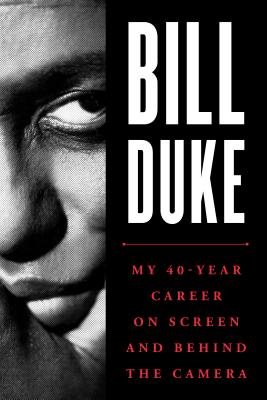 Bill Duke: My 40-Year Career on Screen and Behind the Camera
Bill Duke: My 40-Year Career on Screen and Behind the Camera
by Bill DukeRowman & Littlefield (Nov 09, 2018)
Read Detailed Book Description
While many film fans may not be familiar with Bill Duke’s name, they most certainly recognize his face. Dating back to the 1970s, Duke has appeared in a number of popular films, including Car Wash, American Gigolo, Commando, Predator, and X-Men: The Last Stand. Fewer still might be aware of Duke’s extraordinary accomplishments off-screen—as a talented director, producer, entrepreneur, and humanitarian.
Bill Duke: My 40-Year Career on Screen and behind the Camera is the memoir of a Hollywood original. In an industry that rarely embraces artists of color, Duke first achieved success as an actor then turned to directing. After helming episodes of ratings giants Dallas, Falcon Crest, Hill Street Blues, and Miami Vice, Duke progressed to feature films like A Rage in Harlem, Deep Cover, Hoodlum, and Sister Act 2. In this candid autobiography, Duke recalls the loving but stern presence of his mother and father, acting mentors like Olympia Dukakis, and the pitfalls that nearly derailed his career, notably an addiction to drugs. Along the way, readers will encounter familiar names like Danny Glover, Laurence Fishburne, Forest Whitaker, Arnold Schwarzenegger, and Whoopi Goldberg. From his Broadway debut in 1971 to the establishment of the Duke Media Foundation, which trains and mentors young filmmakers, Duke has been breaking the rules of what it means to triumph in the entertainment industry.
Recalling pivotal moments in his life, Bill Duke: My 40-Year Career on Screen and behind the Camera is the story only Bill Duke could tell.
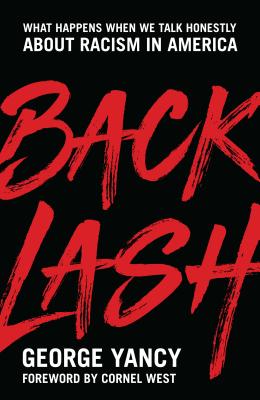 Backlash: What Happens When We Talk Honestly about Racism in America
Backlash: What Happens When We Talk Honestly about Racism in America
by George YancyRowman & Littlefield (Apr 15, 2018)
Read Detailed Book Description
When George Yancy penned a New York Times article entitled “Dear White America,” he knew he was courting controversy. Here, Yancy chronicles the ensuing blowback as he seeks to understand what it was that created so much rage among so many white readers. He challenges white Americans to develop a new empathy for the African American experience.
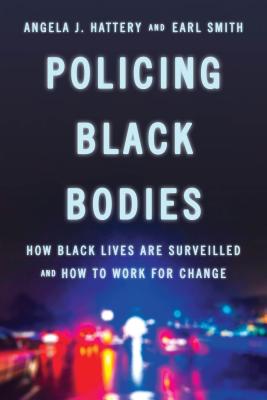 Policing Black Bodies: How Black Lives Are Surveilled and How to Work for Change
Policing Black Bodies: How Black Lives Are Surveilled and How to Work for Change
by Angela Hattery and Earl SmithRowman & Littlefield (Dec 15, 2017)
Read Detailed Book Description
Policing Black Bodies walks readers through critical issues facing African Americans in the criminal justice system—from police brutality to exoneration and re-entry. Synthesizing the latest research with their own data, Hattery and Smith review the history of policing African Americans, explore current issues, and offer recommendations for change.
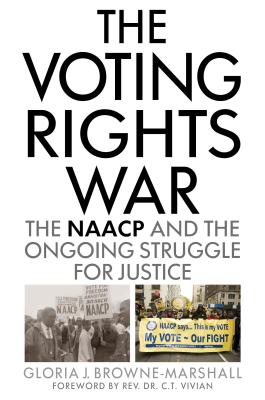 The Voting Rights War: The NAACP and the Ongoing Struggle for Justice
The Voting Rights War: The NAACP and the Ongoing Struggle for Justice
by Gloria J. Browne-MarshallRowman & Littlefield (Nov 16, 2017)
Read Detailed Book Description
The Voting Rights War tells the story of the ongoing struggle to achieve voting equality through 100 years of work by the NAACP at the Supreme Court. From Plessy v. Ferguson through today’s conflicts around voter suppression, the book highlights the challenges facing African A…
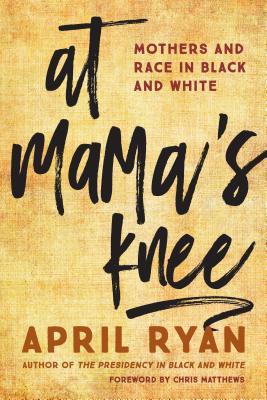 At Mamaís Knee: Mothers and Race in Black and White
At Mamaís Knee: Mothers and Race in Black and White
by April RyanRowman & Littlefield (Dec 15, 2016)
Read Detailed Book Description
In her first book, The Presidency in Black and White, journalist April Ryan examined race in America through her experience as a White House reporter. In this book, she shifts the conversation from the White House to every home in America. At Mama’s Knee looks at race and race relations through the lessons that mothers transmit to their children. As a single African American mother in Baltimore, Ryan has struggled with each gut wrenching, race related news story to find the words to convey the right lessons to her daughters. To better understand how mothers transfer to their children wisdom on race and race relations, she reached out to other mothers—prominent political leaders like Hillary Clinton and Valerie Jarrett, celebrities like Cindy Williams, and others like Sybrina Fulton, Trayvon Martin’s mother, whose lives have been impacted by prominent race related events. At a time when Americans still struggle to address racial division and prejudice, their stories remind us that attitudes change from one generation to the next and one child at a time.
Features interviews with: Sybrina Fulton, mother of Trayvon Martin; John Lewis, congressman; Hillary Clinton, former First Lady, Secretary of State, Presidential candidate; Cindy Williams, actress known for role of Shirley on Laverne & Shirley; Cory Booker, United States senator; Christopher Darden, OJ Simpson prosecutor; Michael Cole, actor best known for role of Pete on The Mod Squad; Valerie Jarrett, presidential advisor; Kerry Kennedy, daughter of Robert and Ethel Kennedy; Iyanla Vansant, author, life coach and television personality; Harry Belafonte, singer, songwriter, actor, and social activist; President Barack Obama; and President Jimmy Carter.
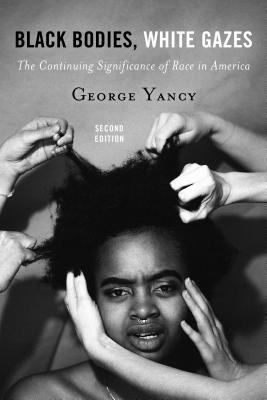 Black Bodies, White Gazes: The Continuing Significance of Race in America
Black Bodies, White Gazes: The Continuing Significance of Race in America
by George YancyRowman & Littlefield (Nov 02, 2016)
Read Detailed Book Description
Following the deaths of Trayvon Martin and other black youths in recent years, students on campuses across America have joined professors and activists in calling for justice and increased awareness that Black Lives Matter. In this second edition of his trenchant and provocative book, George Yancy offers students the theoretical framework they crave for understanding the violence perpetrated against the Black body. Drawing from the lives of Ossie Davis, Frantz Fanon, Malcolm X, and W. E. B. Du Bois, as well as his own experience, and fully updated to account for what has transpired since the rise of the Black Lives Matter movement, Yancy provides an invaluable resource for students and teachers of courses in African American Studies, African American History, Philosophy of Race, and anyone else who wishes to examine what it means to be Black in America.
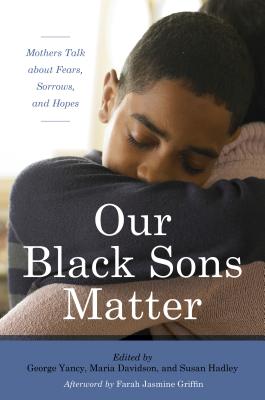 Our Black Sons Matter: Mothers Talk about Fears, Sorrows, and Hopes
Our Black Sons Matter: Mothers Talk about Fears, Sorrows, and Hopes
by George YancyRowman & Littlefield (Oct 17, 2016)
Read Detailed Book Description
Our Black Sons Matter is a powerful collection of original essays, letters, and poems that addresses both the deep joys and the very real challenges of raising black boys today. From Trayvon Martin to Tamir Rice, the list of young black men who have suffered racial violence continues to grow. Young black people also deal with profound stereotypes and structural barriers. And yet, young black men are often paradoxically revered as icons of cultural cool.
Our Black Sons Matter features contributions from women across the racial spectrum who are raising or have raised black sons—whether biologically their sons or not. The book courageously addresses painful trauma, challenges assumptions, and offers insights and hope through the deep bonds between mothers and their children. Both a collective testimony and a collective love letter, Our Black Sons Matter sends the message that black lives matter and speaks with the universal love of all mothers who fear for the lives of their children.
Contributions by Jacki Lynn Baynks, Shelly Bell, Deborah Binkley-Jackson, Meta G. Carstarphen, LaMar Delandro, Gretchen Givens Generett, Jane Anna Gordon, Farah Jasmine Griffin, Maria del Guadalupe Davidson, Susan Hadley, Carol E. Henderson, Dawn Herd-Clark, Elisheba Johnson, Heather Johnson, Newtona (Tina) Johnson, Jane Lazarre, Sara Lomax-Reese, Tracey McCants Lewis, Nicole McJamerson, Michele Moody-Adams, Elisha Oliver, Blanche Radford-Curry, Autumn Redcross, Tracey Reed Armant, Noliwe Rooks, T. Denean, Sharpley-Whiting, Treasure Shields Redmond, Sharyn Skeeter, Becky Thompson, Linda D. Tomlinson, Dyan Watson, Veronica T. Watson, Regina Sims Wright, Karsonya Wise Whitehead, and George Yancy.
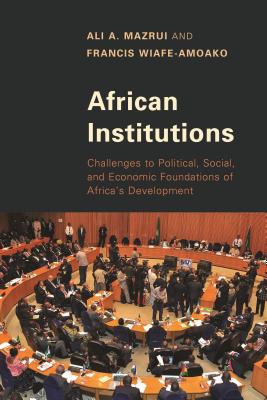 African Institutions: Challenges to Political, Social, and Economic Foundations of Africaís Development
African Institutions: Challenges to Political, Social, and Economic Foundations of Africaís Development
by Ali MazruiRowman & Littlefield (Nov 12, 2015)
Read Detailed Book Description
Every political system, either developed or adopted, has an impact on the structure of society and the level of development. This book analyzes the evolution and nature of political institutions and their effect on Africa’s development. The challenges Africa face in developing viable institutions are not limited to the adoption of foreign institutions, but are also rooted in domestic norms that define society itself. Sometimes, these challenges have to do with the incompatibility between foreign and domestic institutions. The fundamental issue then is to understand the African societies, cultures, and other dynamics that have ensured stability in the past and that need to be recognized when adopting contemporary foreign institutions. This comprehensive text examines three key issue areas in Africa: politics, society, and economy. It demonstrates how the lack of consideration for domestic norms and societal realities explain the weaker institutions and lack of development on the African continent. The chapters examine critical issues such as gender, ethnicity and constitution development, legitimacy and the state, the correlation between abundant resources and instability, the dilemmas of political dynasties, international economic regimes and Africa’s economy, and more. Featuring many case studies, including Kenya, South Africa, Senegal, Ghana, Nigeria, Tanzania, Morocco, Togo, DRC, Ethiopia, Rwanda, the book provides some explanation of underdevelopment in Africa, linking the historical and colonial realities that hinder democratic consolidation to contemporary African politics, society and economy.
 The Presidency in Black and White: My Up-Close View of Three Presidents and Race in America
The Presidency in Black and White: My Up-Close View of Three Presidents and Race in America
by April RyanRowman & Littlefield (Feb 15, 2015)
Read Detailed Book Description
2016 NAACP Image Award Nominee, Essence Top 10 books of 2015, African American Literary Show Inc. 2015 Best Non Fiction Award In The Presidency in Black and White, journalist April Ryan gives readers a compelling and personal behind-the-scenes look at race relations in contemporary America from the epicenter of American power and policy making—the White House, her beat since 1997. On behalf of the American Urban Radio Networks, and through her ""Fabric of America"" news blog, she delivers her readership and listeners (millions of African Americans and close to 300 radio affiliates) a unique urban and minority perspective in news. Her position as a White House Correspondent has afforded her unique insight into the racial sensitivities, issues, and attendant political struggles of our nation’s last three presidents. In Bill Clinton, Ryan saw both a savvy politician who did his best to stay above the racial fray in public, and a man privately pained from the wrongs done to African-Americans throughout our history, not unlike those with whom he’d grown up in Arkansas. In George W. Bush, a man she respected as a faithful husband and father, an unprecedented amount of backlash against what was spun and perceived as racism in his policies particularly those surrounding his administration’s horrendous handling of Hurricane Katrina from which he never truly recovered, and by which he remained personally haunted for years. And in Barack Obama a President expected to transcend divisions and raise us above our racial squabbling simply by taking office a leader who, especially early in his administration, drew his own form of fire from those who noted his surprising absence from various racial issues that presented themselves on the national stage, but upon which he did not seem moved to comment, much less act. With humor, grace, and determination, April shares the highs and lows of her sometimes lonely but rewarding battle to keep questions of race relations in America on the political front burner, and in the President’s ear. She has made this battle her life’s work and will never stop fighting to give a voice to those members of our society who have too long been silenced.
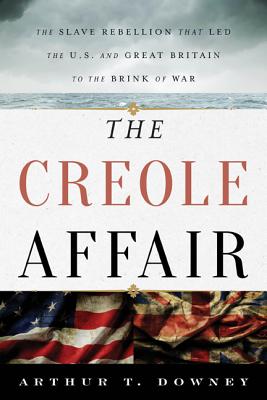 The Creole Affair: The Slave Rebellion That Led the U.S. and Great Britain to the Brink of War
The Creole Affair: The Slave Rebellion That Led the U.S. and Great Britain to the Brink of War
by Arthur T. DowneyRowman & Littlefield (Aug 14, 2014)
Read Detailed Book Description
The Creole Affair is the story of the most successful slave rebellion in American history, and the effects of that rebellion on diplomacy, the domestic slave trade, and the definition of slavery itself. Held against their will aboard the Creole—a slave ship on its way from Richmond to New Orleans in 1841—the rebels seized control of the ship and changed course to the Bahamas. Because the Bahamas were subject to British rule of law, the slaves were eventually set free, and these American slaves’ presence on foreign soil sparked one of America’s most contentious diplomatic battles with the UK, the nation in control of those remote islands. Though the rebellion appeared a success, the ensuing political battle between the United States and Britain that would lead the rivals to the brink of their third war, was just beginning. As such, The Creole Affair is just as importantly a story of diplomacy: of two extraordinary non-professional diplomats who cleverly resolved the tensions arising from this historic slave uprising that, had they been allowed to escalate, had the potential for catastrophe.
 Suburban Erasure: How the Suburbs Ended the Civil Rights Movement in New Jersey
Suburban Erasure: How the Suburbs Ended the Civil Rights Movement in New Jersey
by Walter GreasonRLPG/Galleys (Jul 30, 2014)
Read Detailed Book Description
Suburban Erasure explains how racial inequality adapted in the twentieth century in order to shape American society today. It celebrates the voices of unheralded civil rights leaders, while clearly explaining how suburbs reflect earlier patterns of segregation.
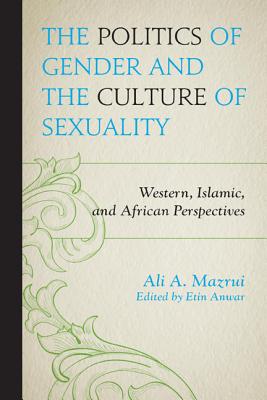 Politics of Gender and the Culture of Sexuality: Western, Islamic, and African Perspectives
Politics of Gender and the Culture of Sexuality: Western, Islamic, and African Perspectives
by Ali MazruiRowman & Littlefield (Jul 08, 2014)
Read Detailed Book Description
The Politics of Gender and the Culture of Sexuality outlines theories of gender within the intellectual paradigm of the triple heritage: Islam, Africanity, and the West. This book describes the impact of individual contexts and politics on meanings attributed to the human body. The Politics of Gender and the Culture of Sexuality explores how men and women relate to each other in monogamous and polygamous marriage, race rivalries, slavery, miscegenation, cultures of procreation, family planning, and the Islamic view of women’s dignity vis-a-vis the Western view of women’s liberty. In doing so, the author and editor present a multifaceted and dynamic theoretical discourse of gender.
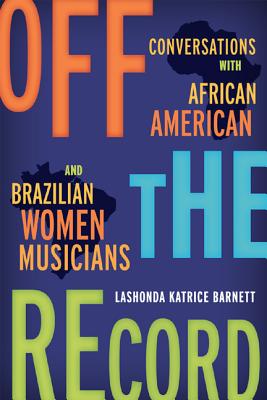 Off the Record: Conversations with African American and Brazilian Women Musicians
Off the Record: Conversations with African American and Brazilian Women Musicians
by LaShonda Katrice BarnettScarecrow Press (Jan 15, 2013)
Read Detailed Book Description
In the context of interviews with diverse artists representing the blues, bossa nova and Brazilian popular music (BMP), classical, folk, jazz and soul traditions, OFF THE RECORD, offers critical, personal perspectives on the music-making process and careers of renowned 21st-century African American and Brazilian women artists, including Cassandra Wilson, Regina Carter, Tia Fuller, Alice Smith, Tracy Chapman, Ruthie Foster, Alexis P. Sutter, Gal Costa, Rossa Passos, Cesária Évora, Denyce Graves, Measha Bruggergosman, Lalah Hathaway, Maysa, and more. Focusing on musicians’ creative process, inspiration and experiences within the music industry, conversations address the historical and social contexts in which music is created. OFF THE RECORD places special emphasis on the impact of gender and genre choice on musicians’ careers; issues of performance and self-presentation; dynamics of race and class; and the contruction and circulation of women musicians’ images in today’s culture.
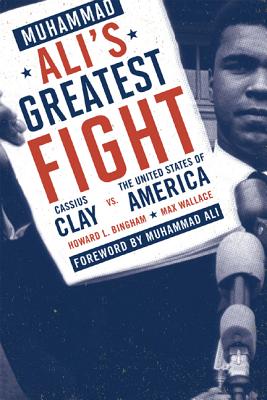 Muhammad Aliís Greatest Fight: Cassius Clay vs. the United States of America
Muhammad Aliís Greatest Fight: Cassius Clay vs. the United States of America
by Howard L. Bingham, Max Wallace, and Muhammad AliM. Evans and Company (Dec 16, 2012)
Read Detailed Book Description
Now an HBO film Catch that premiered in the fall of 2012. In 1966 Muhammad Ali announced his intention to refuse induction into the United States Army as a conscientious objector. This set off a five-year battle that would strip him of his world heavyweight title, bar him from boxing, and nearly send him to prison—all at the peak of his career as the greatest boxer in history. Ali defiantly proclaimed his refusal to go to war with the assertion that it violated his beliefs as a black Muslim. The subsequent legal battle proved to be a test tougher than fighting Sonny Liston, Joe Frazier and George Foreman combined. Framed with photos from Ali’s photographer and good friend Howard Bingham, Muhammad Ali’s Greatest Fight is the extraordinary story of the greatest challenge to the greatest champion of the century.
 The 21st-Century Black Librarian in America: Issues and Challenges
The 21st-Century Black Librarian in America: Issues and Challenges
by Andrew P. Jackson, Jefferson C. Julius, Jr., and Akilah S. NosakhereScarecrow Press (Apr 12, 2012)
Read Detailed Book Description
The 1970 and 1994 editions of The Black Librarian in America by E.J. Josey singled out racism as an important issue to be addressed within the library profession. Although much has changed since then, this latest collection of 48 essays by Black librarians and library supporters again identifies racism as one of many challenges of the new century.
Essays are written by library educators, library graduate students, retired librarians, public library trustees, veteran librarians, and new librarians fresh out of school with great ideas and wholesome energies. They cover such topics as poorly equipped school libraries and the need to preserve the school library, a call to action to all librarians to make the shift to new and innovative models of public education, the advancement in information technology and library operations, special libraries, recruitment and the Indiana State Library program, racism in the history of library and information science, and challenges that have plagued librarianship for decades.
This collection of poignant essays covers a multiplicity of concerns for the 21st-century Black librarian and embodies compassion and respect for the provision of information, an act that defines librarianship. The essays are personable, inspiring, and thought provoking for all library professionals, regardless of race, class, or gender.
 In the Heart of the Beat: The Poetry of Rap (African American Cultural Theory and Heritage)
In the Heart of the Beat: The Poetry of Rap (African American Cultural Theory and Heritage)
by Alexs D. PateScarecrow Press (Nov 24, 2009)
Read Detailed Book Description
Despite its extraordinary popularity and worldwide influence, the world of rap and hip hop is under constant attack. Impressions and interpretations of its meaning and power are perpetually being challenged. Somewhere someone is bemoaning the negative impact of rap music on contemporary culture. In In the Heart of the Beat: The Poetry of Rap, bestselling author and scholar Alexs Pate argues for a fresh understanding of rap as an example of powerful and effective poetry, rather than a negative cultural phenomenon.
Pate articulates a way of "reading" rap that makes visible both its contemporary and historical literary values. He encourages the reader to step beyond the dominance of the beat and the raw language and come to an appreciation of rap’s literary and poetic dimensions. What emerges is a vision of rap as an exemplary form of literary expression, rather than a profane and trendy musical genre. Pate focuses on works by several well-known artists to reveal in rap music, despite its penchant for vulgarity, a power and beauty that is the heart of great literature.
 Unburdened By Conscience: A Black Peopleís Collective Account Of Americaís Ante-Bellum South And The Aftermath
Unburdened By Conscience: A Black Peopleís Collective Account Of Americaís Ante-Bellum South And The Aftermath
by Anthony W. NealUniversity Press of America (Nov 16, 2009)
Read Detailed Book Description
In Unburdened by Conscience, Anthony W. Neal forcefully argues that influential historians have been unable to offer a complete account of ante-bellum-era American slavery because of their preoccupation with humanizing the slaveholders. He charges them with concealing the full horrors of slavery in order to present the slaveholders in a more positive light. By skillfully weaving together candid first-hand accounts of courageous ex-slaves, Neal then permits readers to see slavery in the United States from their point of view. Former slaves talk openly about the break-up of their marital unions and families and about matters rarely examined in most American slavery history books. Those issues include the slaveholders’ legally-sanctioned acts of violence, their practice of slave-breeding, and their rape of black women. Through this work, Neal gives a voice to black people who endured American slavery, and presents a sobering record not found in most books on the topic.
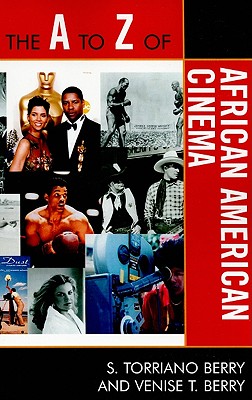 The A to Z of African American Cinema
The A to Z of African American Cinema
by S. Torriano Berry and Venise BerryScarecrow Press (Sep 02, 2009)
Read Detailed Book Description
On 4 July, 1910, in 100-degree heat at an outdoor boxing ring near Reno, Nevada, film cameras recorded-and thousands of fans witnessed-former heavyweight champion Jim Jeffries’ reluctant return from retirement to fight Jack Johnson, a black man. After 14 grueling rounds, Johnson knocked out Jeffries and for the first time in history, there was a black heavyweight champion of the world. At least 10 people lost their lives because of Johnson’s victory and hundreds more were injured due to white retaliation and wild celebrations in the streets. Public screenings received instantaneous protests and hundreds of cities barred the film from being shown. Congress even passed a law making it a federal offense to transport moving pictures of prizefights across state lines, and thus the most powerful portrayal of a black man ever recorded on film was made virtually invisible.
This is but one of the hundreds of films covered in The A to Z of African American Cinema, which includes everything from The Birth of a Nation to Crash. In addition to the films, brief biographies of African American actors and actresses such as Sidney Poitier, James Earl Jones, Halle Berry, Eddie Murphy, Whoopi Goldberg, Denzel Washington, and Jamie Foxx can be found in this reference. Through a chronology, a list of acronyms and abbreviations, an introductory essay, a bibliography, appendixes, black-&-white photos, and hundreds of cross-referenced dictionary entries on actors, actresses, movies, producers, organizations, awards, film credits, and terminology, this book provides a better understanding of the role African Americans played in film history.
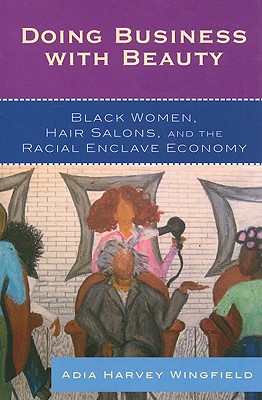 Doing Business With Beauty: Black Women, Hair Salons, and the Racial Enclave Economy
Doing Business With Beauty: Black Women, Hair Salons, and the Racial Enclave Economy
by Adia Harvey WingfieldRowman & Littlefield (Jun 01, 2009)
Read Detailed Book Description
Black women comprise one of the fastest-growing groups of business owners in the United States. In Doing Business with Beauty, sociologist Adia Harvey Wingfield examines this often-overlooked group and one of the most popular businesses run by these entrepreneurs: hair salons. Using in-depth interviews with hair salon owners, Doing Business with Beauty explores several facets of the business of owning a hair salon, including the process of becoming an owner, the dynamics of the owner-employee relationship, and the factors that steer black women to work in the hair industry. Through Harvey Wingfield’s research we can understand the black female business owner’s struggle for autonomy and her success in entrepreneurship.
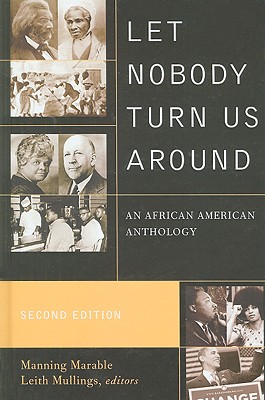 Let Nobody Turn Us Around: An African American Anthology: Voices of Resistance, Reform, and Renewal
Let Nobody Turn Us Around: An African American Anthology: Voices of Resistance, Reform, and Renewal
by Manning MarableRowman & Littlefield (Apr 01, 2009)
Read Detailed Book Description
One of America’s most prominent historians and a noted feminist bring together the most important political writings and testimonials from African-Americans over three centuries.
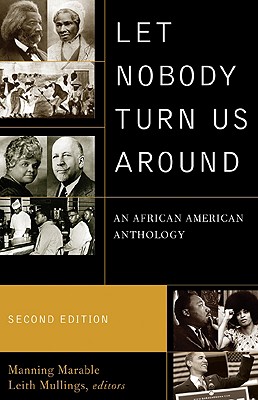 Let Nobody Turn Us Around: An African American Anthology
Let Nobody Turn Us Around: An African American Anthology
by Manning MarableRowman & Littlefield (Apr 01, 2009)
Read Detailed Book Description
This anthology of black writers traces the evolution of African-American perspectives throughout American history, from the early years of slavery to the end of the twentieth century. The essays, manifestos, interviews, and documents assembled here, contextualized with critical commentaries from Marable and Mullings, introduce the reader to the character and important controversies of each period of black history. The selections represent a broad spectrum of ideology. Conservative, radical, nationalistic, and integrationist approaches can be found in almost every period, yet there have been striking shifts in the evolution of social thought and activism. The editors judiciously illustrate how both continuity and change affected the African-American community in terms of its internal divisions, class structure, migration, social problems, leadership, and protest movements. They also show how gender, spirituality, literature, music, and connections to Africa and the Caribbean played a prominent role in black life and history.
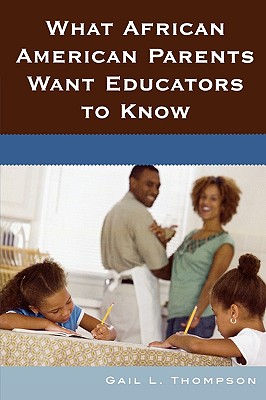 What African American Parents Want Educators to Know
What African American Parents Want Educators to Know
by Gail L. ThompsonR&L Education (Apr 29, 2008)
Read Detailed Book Description
The African-American parents/guardians who participated in this study were biological parents in two-parent homes, single parents, grandparents, foster parents, and stepparents who were rearing school-age children. Some had been deterred from completing their own formal education as a result of peer pressure, temptation outside of school, or stressful circumstances. Others had positive schooling experiences and stable childhoods. Regardless of the differences in their background experiences, the majority of these parents or guardians were single-minded about wanting a better life for their children, believing that a good K-12 education and college education were crucial to their children’s advancement. And while most believed resolutely in the hope offered by the public school system, they recognized that schools couldn’t do it all.
African-American parents and guardians are willing to work with teachers and administrators to ensure that their children receive a quality education. Yet if the historic achievement gap is ever to be eradicated, teachers, administrators, researchers, and policymakers must be more willing to view African-American parents/guardians as assets. African-American parents/guardians must be invited to verbalize their concerns, and those concerns must be taken seriously to effect meaningful and lasting change in the public school system.
 Euro-Jews and Afro-Arabs: The Great Semitic Divergence in World History
Euro-Jews and Afro-Arabs: The Great Semitic Divergence in World History
by Ali MazruiUniversity Press of America (Dec 01, 2007)
Read Detailed Book Description
It is…of considerable value to those who wish to understand better the historical trends and appreciate the respective places of Euro-Jews and Afro-Arabs in history and geography….Recommended.—CHOICE, November 2008
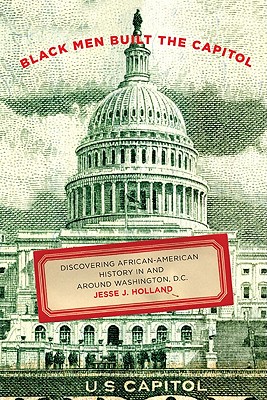 Black Men Built the Capitol: Discovering African-American History In and Around Washington, D.C.
Black Men Built the Capitol: Discovering African-American History In and Around Washington, D.C.
by Jesse J. HollandGlobe Pequot (Sep 01, 2007)
Read Detailed Book Description
Millions of people visit the National Mall, the White House, and the U.S. Capitol each year. If they only hear the standard story, a big question remains: “Where’s the black history?”
Packed with new information and archival photos, Black Men Built the Capitol answers this question. In this thoroughly researched yet completely accessible volume, Washington insider and political journalist Jesse J. Holland shines a light on the region’s African-American achievements, recounting little-known stories and verifying rumors, such as:
- Enslaved black men built the Capitol, White House, and other important Washington structures.
- Philip Reid, a thirty-nine-year-old slave from South Carolina, cast and helped save the model of the Statue of Freedom that sits atop the Capitol Dome.
- The National Mall sits on the former site of the city’s most bustling slave market.
- The grounds that are now Arlington National Cemetery were, from 1863 to 1888, a self-sustaining village for former slaves called the Freedman’s Village.
Included are hundreds of places in the District of Columbia, Maryland, and Virginia that illuminate “the rest of the story” for Washington residents and visitors alike.
The first book of its kind, with comprehensive up-to-date details Historic sites along the Mall, such as the U.S. Capitol building, the White House and the Lincoln Memorial, are explored from an entirely new perspective in this book, with never-before-told stories and statistics about the role of blacks in their creation. This is an iconoclastic guide to Washington, D.C., in that it shines a light on the African Americans who have not traditionally been properly credited for actually building important landmarks in the city.
New research by a top Washington journalist brings this information together in a powerful retelling of an important part of our country’s history.In addition the book includes sections devoted to specific monuments such as the African American Civil War Memorial, the real "Uncle Tom’s cabin," the Benjamin Banneker Overlook and Frederick Douglass Museum, the Hall of Fame for Caring Americans, and other existing statues, memorials and monuments. It also details the many other places being planned right now to house, for the first time, rich collections of black American history that have not previously been accessible to the public, such as the soon-to-open Smithsonian Institution National Museum of African American History and Culture, and the Martin Luther King, Jr., National Monument, as well as others opening over the next decade.
This book will be a source of pride for African Americans who live in or come from the D.C., Maryland, and Virginia area as well as for the 18 million annual African American visitors to our nation’s capital. Jesse J. Holland is a political journalist who lives in the Capitol Hill neighborhood of Washington, D.C. He is theCongressional legal affairs correspondent for the Associated Press, and his stories frequently appear in the "New York Times" and other major papers. In 2004, Holland became the first African American elected to Congressional Standing Committee of Correspondents, which represents the entire press corps before the Senate and the House of Representatives. A graduate of the University of Mississippi, he is a frequent lecturer at universities and media talk shows across the country.
 Philosophy in Multiple Voices
Philosophy in Multiple Voices
by George YancyRowman & Littlefield (Aug 05, 2007)
Read Detailed Book Description
Philosophy in Multiple Voices invites transactional dialogue, critical imagination, and the desire to travel to enter those discursive spaces where the love of wisdom gets inflected through both lived embodiment and situational history. The text raises significant meta-philosophical questions around the issue of who constitutes the ’philosophical we’ through a delineation and valorization of multiple philosophical voices-African-American, Afro-Caribbean, Asian-American, Feminist, Latin-American, Lesbian, Native-American and Queer-that set forth complex concerns around canon formation, the relationship between philosophical discursive configurations and issues of gendered, sexed, racial and ethnic identities, the dynamic of shifting philosophical historical trajectories, differential philosophical visions, sensibilities, and philosophical praxes that are still largely underrepresented within the institutional confines of ’mainstream’ philosophy. The text encourages philosophical heterogeneity as a value that ought to be nurtured.
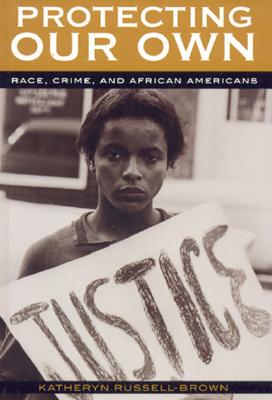 Protecting Our Own: Race, Crime, and African Americans
Protecting Our Own: Race, Crime, and African Americans
by Katheryn Russell-BrownRowman & Littlefield (Feb 02, 2006)
Read Detailed Book Description
Inspired by the O.J. Simpson case, Protecting Our Own explores the reasons behind the rise of the ’black protectionism’ phenomenon and its implications for the future. Comparing the plight of the African American community to the melancholy lyrics but vibrant beat of the blues, Russell-Brown uses the lyrics of these songs to paint a vivid picture of the African American community struggling through the burdens of racial oppression such as second-tier status and lynchings solely due to the color of their skins.
Russell-Brown explains the feelings of protectionism towards African American celebrities, as many African Americans feel that they have to ’protect their own’ because no one else will. Many African Americans, Russell-Brown argues, feel that African Americans are still under siege and that the few lucky African Americans who find a way into the spotlight deserve a break. However, with more and more African Americans in the spotlight, this practice has new consequences.
Protecting Our Own considers these issues in detail. The book sets out to accomplish three goals: to define Black protectionism, to explain how it works and how it can be reformulated to work in the best interests of the African American community. The book uses cases such as the infamous O.J. Simpson case to illustrate and explain the motivations behind black protectionism, even if the defendant is accused of grievous moral and ethical wrongdoing.
Russell-Brown criticizes the use of black protectionism as a knee jerk reaction and expresses the need to hold African American celebrities accountable for their misdeeds. She suggests a selective approach to black protectionism that will benefit the African American community at large rather than just a lucky few. This book praises black protectionism at its best—a fight that will ensure racial justice in the future.
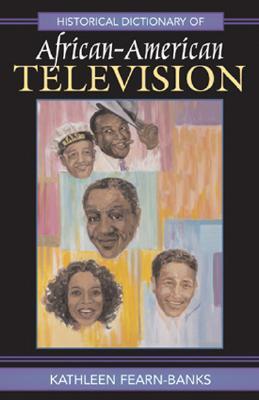 Historical Dictionary of African-American Television (Historical Dictionaries of Literature and the Arts)
Historical Dictionary of African-American Television (Historical Dictionaries of Literature and the Arts)
by Kathleen Fearn-BanksScarecrow Press (Nov 15, 2005)
Read Detailed Book Description
From Amos ’n’ Andy to The Jeffersons to Family Matters to Chappelle’s Show, this volume covers it all with entries on all different genres?animation, documentaries, sitcoms, sports, talk shows, and variety shows?and performers such as Muhammad Ali, Louis Armstrong, Bill Cosby, and Oprah Winfrey. Additionally, information can be found on general issues, ranging from African American audiences and stereotypes through the related networks and organizations.
This book has hundreds of cross-referenced entries, from A to Z, in the dictionary and a list of acronyms with their corresponding definitions. The extensive chronology shows who did what and when and the introduction traces the often difficult circumstances African American performers faced compared to the more satisfactory present situation. Finally, the bibliography is useful to those readers who want to know more about specific topics or persons.
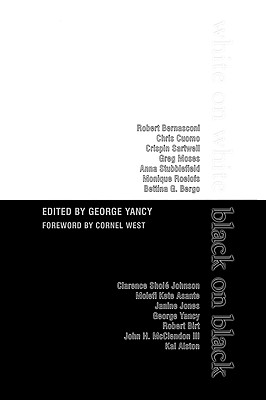 White on White/Black on Black
White on White/Black on Black
by George YancyRowman & Littlefield (Mar 25, 2005)
Read Detailed Book Description
White on White/Black on Black is a unique contribution to the philosophy of race. The book explores how fourteen philosophers, seven white and seven black, philosophically understand the dynamics of the process of racialization. Combined, the contributions demonstrate different and similar conceptual trajectories of raced identities that emerge from within and across the racial divide. Each of the fourteen philosophers, who share a textual space of exploration, name blackness/whiteness, revealing significant political, cultural, and existential aspects of what it means to be black/white. Through the power of naming and theorizing whiteness and blackness, White on White/Black on Black dares to bring clarity and complexity to our understanding of race identity.
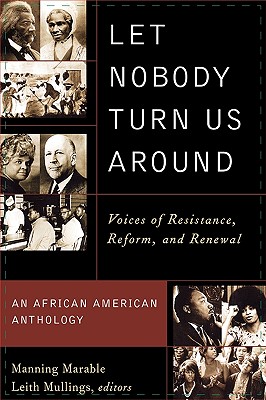 Let Nobody Turn Us Around: Voices of Resistance, Reform, and Renewal
Let Nobody Turn Us Around: Voices of Resistance, Reform, and Renewal
by Manning Marable and Leith MullingsRowman & Littlefield (Jan 24, 2003)
Read Detailed Book Description
This anthology of black writers traces the evolution of African-American perspectives throughout American history, from the early years of slavery to the end of the 20th century. The essays, manifestos, interviews, and documents assembled here, contextualized with critical commentaries from Marable and Mullings, introduce the reader to the character and important controversies of each period of black history. The selections represent a broad spectrum of ideology. Conservative, radical, nationalistic, and integrationist approaches can be found in almost every period, yet there have been striking shifts in the evolution of social thought and activism. The editors judiciously illustrate how both continuity and change affected the African-American community in terms of its internal divisions, class structure, migration, social problems, leadership, and protest movements. They also show how gender, spirituality, literature, music, and connections to Africa and the Caribbean played a prominent role in black life and history. To view the companion study guide, please click here http://www.rowmanlittlefield.com/ISBN/0742527093
 The Philosophical I: Personal Reflections on Life in Philosophy
The Philosophical I: Personal Reflections on Life in Philosophy
by George YancyRowman & Littlefield (Nov 19, 2002)
Read Detailed Book Description
Philosophy is shaped by life and life is shaped by philosophy. This is reflected in The Philosophical I, a collection of 16 autobiographical essays by prominent philosophers. Candid and philosophically insightful, these personal narratives critically call into question the belief that philosophy should be kept separate from the personal experience of philosophers. Each contributor traces the fundamental influences-both philosophical and otherwise-that have shaped his or her identity. In this postmodern world, the self is often viewed as irreparably fragmented and fractured, but the reflections in this volume point to a self that is a continuous, though dynamic, storyline. What shines through in each of these essays is that philosophy is a profoundly personal adventure.
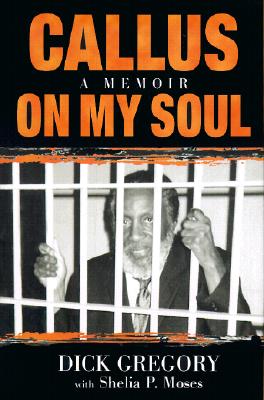 Callus on My Soul: A Memoir
Callus on My Soul: A Memoir
by Dick GregoryTaylor Trade Publishing (Oct 09, 2001)
Read Detailed Book Description
Comedian and human rights activist Dick Gregory reflects on his life and modern American history in a conversational memoir.
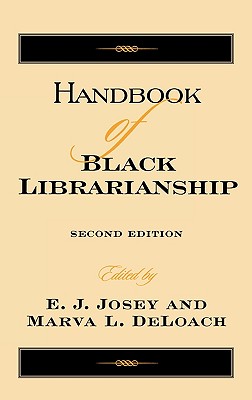 Handbook of Black Librarianship Second Edition
Handbook of Black Librarianship Second Edition
by E.J. JoseyScarecrow Press (Jul 12, 2000)
Read Detailed Book Description
E. J. Josey and Marva DeLoach have compiled a treasure trove of information about black librarianship. This volume includes history, statistics, and documentation of contemporary issues related both to African American participation in librarianship and to the organizations that they built to provide information resources for their people. Of interest to all librarians, bibliophiles, bibliographers, and students of American culture, this handbook fills a niche in American cultural history.
Like the first edition, published in 1977, this new edition chronicles the history and achievements of black librarians in their chosen profession. Chapters documenting pioneering individuals and events are juxtaposed with historical descriptions of early professional organizations. Other sections provide important information related to diversity, including the language of diversity and salient statistical facts about African American librarians. New or revised chapters treat issues related to information technology and electronic resources, library services to African Americans, and library education. Of special interest is the section on African American resources, which covers archival and fugitive literature, library holdings, literature, oral history programs, and museums, with several chapters on awards. A complete section is devoted to the important issue of health sciences libraries and blacks. Another new section covers libraries, library education, and publishing in Africa. The final section highlights the role of African Americans in selected areas of the knowledge industry.
 Voices of Color: 50 Scenes and Monologues by African American Playwrights
Voices of Color: 50 Scenes and Monologues by African American Playwrights
by Woodie KingGlobe Pequot (Feb 01, 2000)
Read Detailed Book Description
Voices of Color is a trailblazing collection of scenes and monologues by African American playwrights. This major omnibus of contemporary American writing will serve as a primary resource for African American artists in search of their own voice for the stage. Actors and directors will now have access to a much larger spectrum of work in which to shine. Readers will be introduced to a rich, vibrant medley of work of the human spirit. And schools, colleges and libraries will, at last, have the book we all need to fully explore America’s potential for drama.
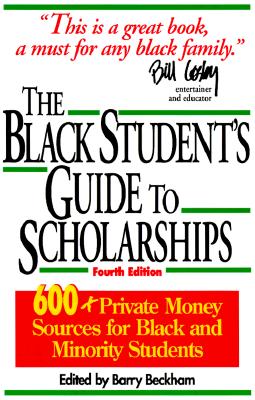 The Black Studentís Guide to Scholarships, Revised 600+ Private Money Sources for Black and Minority Students (Beckhamís Guide to Scholarships for Black and Minority Students)
The Black Studentís Guide to Scholarships, Revised 600+ Private Money Sources for Black and Minority Students (Beckhamís Guide to Scholarships for Black and Minority Students)
by Barry BeckhamMadison Books (Sep 26, 1996)
Read Detailed Book Description
_<"The most thorough guide available to financial aid for black students._>" ?Dr. Israel Tribble, Jr., President, Florida Education Fund
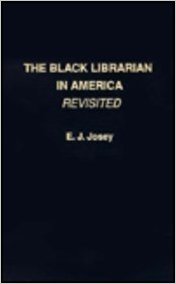 The Black Librarian in America Revisited
The Black Librarian in America Revisited
by E.J. JoseyScarecrow Press (Jun 01, 1994)
Read Detailed Book Description
This sequel to The Black Librarian in America (Scarecrow, 1970) contains an array of contributors representing a new generation of African American librarians, addressing the same perplexing problems that their predecessors examined. This volume is being issued at a time when there is a great concern about cultural diversity in the country. Cultural diversity is laudable, but the pervasive problem in the country is institutional racism. All of the contributors aggree that it is racism that should be eradicated if a truly multicultural society that represents cultural diversity is to develop.
A wide range of topics are explored. In addition, a profile of Dorothy Porter Wesley, one of the pioneer African American librarians; librarians and archivists as writers, and a provocative essay by Congresswoman Major R. Owens on "The Specter of Racism in an Age of Cultural Diversity: The New Paradigm for African American Librarians." Among the contributors are Carolyn O. Frost, Herman L. Totten, Carla Hayden, Charles M. Brown, Alexander Boyd, Jesse Carney Smith, James F Williams,II, Lou Helen Saunders, Ina A. Brown, Vivian Davidson Hewitt, Monteria Hightower, Ella Gaines Yates, and Ann Allen Shockley.
Especially designed for professional librarians, library school students, and other information professionals, this volume would be a useful addition to African American collections and other scholarly collections dealing with American society. A copious index that is cross referenced makes it very useful as a reference tool.
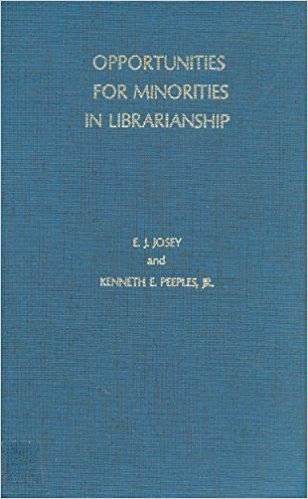 Opportunities for Minorities in Librarianship
Opportunities for Minorities in Librarianship
by E.J. JoseyScarecrow Press (Aug 01, 1977)
Read Detailed Book Description
New Dimensions for Academic Library Service
by E.J. JoseyRowman & Littlefield (Jan 01, 1975)
Read Detailed Book Description
What Black Librarians Are Saying
by E.J. JoseyScarecrow Press (Jun 01, 1972)
Read Detailed Book Description
The Black Librarian in America
by E.J. JoseyScarecrow Press (Jun 01, 1970)
Read Detailed Book Description
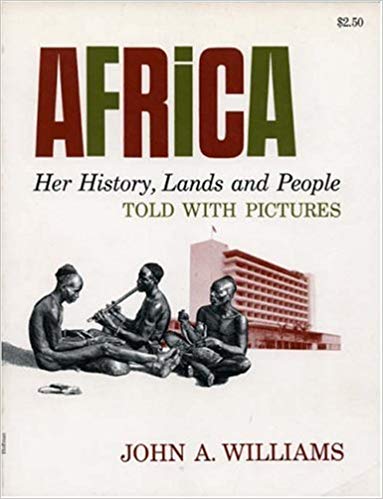 Africa: Her History, Lands and People, Told with Pictures
Africa: Her History, Lands and People, Told with Pictures
by John A. WilliamsRowman & Littlefield (Jun 01, 1962)
